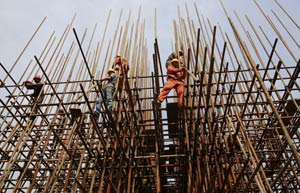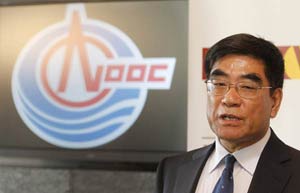China on path to modern fiscal system
By Wu Jiangang (chinadaily.com.cn) Updated: 2014-07-10 11:09It is good to see a plan to increase transparency, but it is easier to say than to do. After all, that promise has been made many times. The budget needs to show expenditures for specific projects, not the vague outlines which are shown now.
Since National People's Congress (NPC) deputies are mostly part-time and they only spend a few days each year to listen to government reports, the NPC itself may lack the professionalism it needs to finish its job, too.
In fact, there is still another tough problem. A big part of the government's income and expenditure is outside the budget system because there are many local financing methods and important income from selling land and charging administrative fees. How the state deals with State-owned enterprises will show the courage of the government to transform its role.
Another important part of fiscal evolution is reform of the tax system.
The plan aims to improve fairness and structure. For example, personal income tax may be based on the income of a family and there will be more taxes on property holding, capital gains and inheritance.
This is good news, but lack of related information is a big problem and it seems that the inheritance tax will not be levied in the short run.
In fact, tax legislation and enforcement may need reform. The lack of tax legislative processes and abuse of tax incentives do not get enough attention.
As to the share of expenditure between central and local governments, a more important task is to define what the government should do.
The Third Plenary Session of the 18th Central Committee has set the market system as the core of tool of the allocation of resources. This actually means that while the market needs a negative list to show what it cannot do, the government needs a positive list to show what it can do.
The traditional role of government as a controller rather than service provider has been a tradition in China's culture. The transformation of the role of government can be regarded as a revolution of the soul of government, or a social democracy movement without bloodshed.
The June 30 plan set a clear timetable for the reform: the basic tasks will be finished before 2016 and a modern financial system will be established before 2020.
The reform of China fiscal system will, of course, not easy, but at least it is on the way.
The author is a lecturer at the Management School of the Shanghai University and a research fellow at the China Europe International Business School Lujiazui International Finance Research Center. The views do not necessarily reflect those of China Daily.
 |
 |
| Fiscal policy to play larger growth role |
|
- Top international luxury brand expo opens in Beijing
- Woman sells Beijing house, buys six properties in US
- Green finance needs government intervention: experts
- China signs $1.6b engineering deal for Siberian LNG project
- Fonterra joins Abbott to plan third dairy hub in China
- Lufthansa sees full Air China joint venture not before 2016
- Bigger govt role needed in green finance
- BIT to re-anchor US-China economic relationship

















